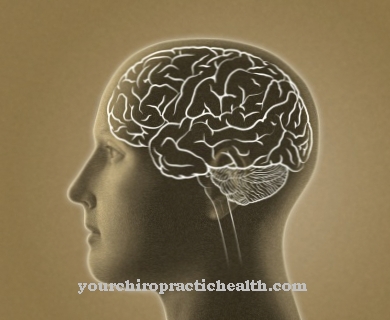The Nutritional advice has become an important part of the affluent society. How the body reacts to the environment and diet, which diet is suitable for which person, which biochemical processes take place in the organism, which allergies there are, what influence eating behavior, body awareness, daily exercise, sport and general lifestyle have on health and what a suitable healthy nutrition plan looks like - these are the issues that nutrition counseling deals with.
What is nutritional advice?

A healthy diet is the be-all and end-all for a healthy body and emotional balance for every person. The only difficult thing is the selection of suitable food, which is not always clear due to the huge range of products. Many people do not even know what is really healthy and what is perhaps only conveyed or marketed as healthy. Likewise, the diet through everyday life and work is often very one-sided or even wrong, which in turn can lead to overweight and various diseases.
However, nutritional advice does not deal so much with the diseases that result from it, but rather addresses healthy people in a supportive manner. This can be advice for children, pregnant women, the elderly or athletes, as well of course for people who are struggling with their weight.
Coaching and therapy, advice on special diets, e.g. B. for extreme or strength athletes, the explanation and processing of nutrients and the function and effect of such on the organism are important topics of nutritional advice. Not only are extensive nutritional plans drawn up, but a person's eating, living and exercise habits may also be changed.
Of course, the nutritionist can also specialize in the training. In the course of time, entire professional groups such as nutritionists, dietitians or nutritionists have emerged. Nutritional counseling itself is a further-qualified measure that is only possible as a course if you have already trained as a dietician or studied to become an ecotrophologist.
The ecotrophology thus complements the trophology, which pays attention to the scientific aspects of a diet, while the former deals with psycho-sociological, economic and scientific-medical aspects. In this regard, the field includes nutrition and health as well as dietetics.
Diet assistants, on the other hand, work specifically in clinics or rehabilitation centers to specifically address health promotion and nutritional advice. The focus is also on cooking and kitchen technology, the preparation of diet food and controlled food distribution. Nutritional advice takes place in both individual and group sessions.
Treatments & therapies
For normal people in particular, the question of what really constitutes a healthy diet is not always easy to answer. Nutrients are complexly processed in the organism. Everyone has different needs and eating habits. The body also reacts differently to the food it receives.
A balanced diet remains the best alternative to keep the body and mind fit. This includes plant-based foods such as fruits, vegetables and grains that provide valuable fiber, vitamins and minerals, protein and animal products for protein, calcium and minerals that are indispensable for the body, few but high-quality vegetable fats and drinking of sufficient fluid. These are essential basic prerequisites for nutritional advice that people learn to understand the biochemical processes and relationships, to distinguish the ingredients, to analyze and change their own eating behavior, to use and prepare the necessary foods correctly.
During a nutritional consultation, the first step is to check a person's health. This is necessary in order to be able to better assess the situation. In addition, questions are clarified what the diet looks like, which allergies, intolerances or other restrictions are present. The health history plays an essential role in adjusting the diet to the person.
In addition to the following information about nutrients and food, along with a nutritional protocol and plan, daily routine and exercise concept, work is carried out on the entire thought and behavior pattern of people. These are not only deepened, but also implemented with practical exercises. The nutritional advice helps to understand one's own eating behavior and to convey impulses for change. All of this should of course lead to a permanent change in diet in order not only to ensure a healthy diet, but also to be able to maintain your own weight.
Diagnosis & examination methods
Your own weaker self is the problem of poor nutrition. In fact, society excuses this weakness of will more often than assumed, turns a blind eye when a person lets go. However, this behavior can quickly escalate into self-acceptance so that obesity is no longer seen as a problem. This recognized social influence then becomes one's own excuse. This is where nutritional advice comes in. The will, one's own influencing of the will, one's own emotionality and rationality, insight and motivation are accompanying therapeutic measures.
The fear of many people consists in the fact that with a nutritional consultation and a set up meal plan and the associated protocol, they can no longer eat everything that the heart demands. In this sense, there are no foods that make you fat. If there is no intolerance or intolerance, people can eat what they like. The meals are only put together more consciously. It is learned to eat “smartly” without having to give up. The creative and flexible handling of food and one's own problem is practiced. The aim is not to appeal and bans, but rather to help people enjoy eating and exercise.
However, a nutritionist is only reputable if he does not sell any products during the consultation, at most if he makes recommendations. As in any profession, there are also black sheep in nutrition counseling trying to earn money through the branch. However, these are easy to distinguish through your own behavior.












.jpg)



.jpg)










.jpg)
